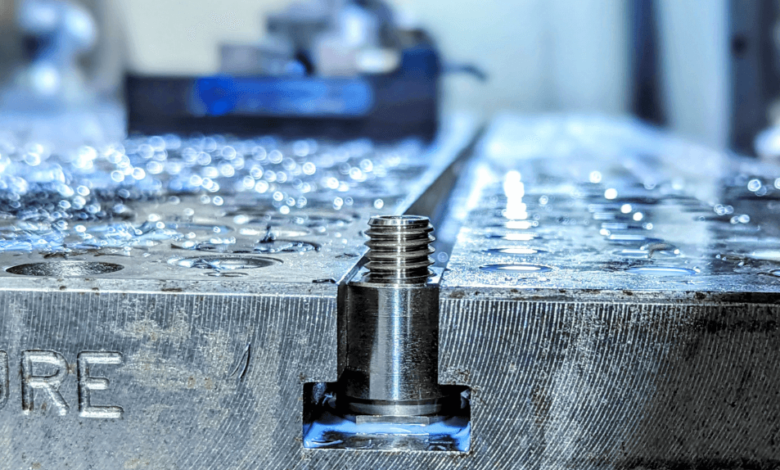Unlocking the Power of custom screws in Modern Manufacturing

In the fast-evolving world of manufacturing and product design, attention to detail can make all the difference. Among the many critical components custom screws play a fundamental role that is often overlooked. From small electronics to heavy machinery, these fasteners ensure the structural integrity and operational efficiency of countless products.
This article delves into the importance of custom screws, the advantages they offer over standard fasteners, the manufacturing process, and practical tips for choosing the right supplier for your specific needs.
What exactly are custom screws?
Unlike standard screws, which come in fixed sizes, materials, and shapes, custom screws are designed and manufactured to meet unique specifications dictated by the application or industry requirements. This customization may involve alterations in:
- Thread pitch and type
- Length and diameter
- Head shape and drive type
- Material composition and coating
- Mechanical properties such as tensile strength and hardness
Custom screws are tailored to solve challenges that off-the-shelf products cannot, ensuring better performance and longer-lasting results.
See also: Estate Management London and Why It Matters with Uniq Block Management
The advantages of using custom screws
1. Precise Fit for Complex Applications
Every product has unique assembly needs. Custom screws ensure that fasteners fit perfectly, avoiding issues such as loose joints or stress concentration that can lead to failure.
2. Enhanced Material Selection
Custom screws can be made from materials that suit specific environments — for example, stainless steel for corrosion resistance, titanium for lightweight strength, or specialty alloys for high-temperature applications.
3. Improved Durability and Safety
By tailoring the mechanical properties of screws, manufacturers can reduce the risk of fatigue, wear, and breakage, which directly impacts product safety and longevity.
4. Compliance with Industry Standards
Many sectors require fasteners to meet regulatory standards and certifications. Custom screws can be engineered to comply with these, including traceability documentation and batch testing.
5. Cost-Effectiveness Over Time
While custom screws might have a higher initial cost, they reduce maintenance frequency and prevent costly recalls or repairs by delivering superior reliability.
6. Unique Design and Branding Opportunities
For consumer products, custom screws can also contribute aesthetically by featuring branded heads, special finishes, or innovative shapes that enhance product identity.
Industries benefiting from custom screws
Custom screws are indispensable across a wide spectrum of industries, including:
- Automotive: Engine components, chassis assembly, and safety systems require high-strength, precisely engineered screws.
- Electronics: Miniature, finely threaded screws are crucial for compact device assembly without damage.
- Aerospace: Screws must meet rigorous standards for weight, strength, and environmental resistance.
- Medical Devices: Biocompatible screws with sterilization-friendly finishes are essential for implants and surgical tools.
- Construction: Durable screws for infrastructure projects must withstand environmental exposure and load-bearing stress.
The manufacturing journey of custom screws
1. Initial Consultation and Design
Manufacturers work closely with clients to define the screw’s specifications, including size, material, thread type, and mechanical requirements.
2. Material Procurement
Raw materials are selected based on the project’s needs, ensuring quality and performance.
3. Forming Techniques
Mass production generally involves cold heading to shape screws efficiently and thread rolling to form durable threads. For complex or low-volume orders, CNC machining is employed.
4. Heat Treatment
Screws often undergo heat treatment to enhance strength and toughness, tailored to the application’s requirements.
5. Surface Finishing
Protective coatings such as zinc plating, anodizing, or black oxide are applied to improve corrosion resistance and aesthetics.
6. Quality Control and Testing
Manufacturers implement rigorous inspection procedures — dimensional checks, tensile testing, and surface evaluation — to guarantee that every batch meets specifications.
7. Packaging and Delivery
Custom packaging solutions ensure screws arrive safely and facilitate easy integration into assembly lines.
How to select the right custom screws supplier
Choosing a reliable supplier is crucial to achieving the desired quality and delivery timelines. Consider the following:
| Factor | Considerations |
| Experience and Expertise | Proven record in your industry and screw types |
| Manufacturing Capabilities | Access to advanced cold heading, CNC machining, and finishing technology |
| Material Variety | Availability of diverse alloys and coatings |
| Quality Certifications | Compliance with ISO 9001, ASTM, or industry-specific standards |
| Customization Flexibility | Willingness to accommodate special requirements |
| Quality Assurance | Robust inspection, testing, and documentation processes |
| Communication | Responsive and transparent project management |
| Delivery Reliability | On-time shipment and inventory management solutions |
Requesting samples or visiting manufacturing facilities can provide additional assurance.
Real-world success: Custom screws in renewable energy
A renewable energy company experienced frequent screw corrosion in offshore wind turbines due to harsh marine environments. Partnering with a custom screws manufacturer, they developed:
- High-grade stainless steel screws with specialized anti-corrosion coatings
- Custom thread profiles optimized for assembly speed and reliability
- Comprehensive testing and certification for marine applications
This collaboration resulted in significant improvements in turbine reliability and maintenance reduction.
Trends shaping the future of custom screws
Smart Fasteners
Emerging technology integrates micro-sensors into screws for real-time monitoring of stress, torque, and environmental factors.
Advanced Materials
Use of lightweight composites and titanium alloys enhances performance while reducing product weight.
Additive Manufacturing
3D printing enables rapid prototyping and production of complex, custom geometries.
Sustainable Practices
Eco-conscious manufacturing and recyclable materials are gaining priority among suppliers.
Conclusion
Custom screws are an indispensable part of modern manufacturing, providing tailored solutions that enhance product performance, durability, and safety. Partnering with an experienced custom screws manufacturer empowers businesses to meet unique challenges with precision-engineered fasteners designed specifically for their applications.
By investing in custom screws, companies not only improve product quality but also streamline assembly, reduce long-term costs, and comply with industry standards—creating a lasting competitive advantage.







